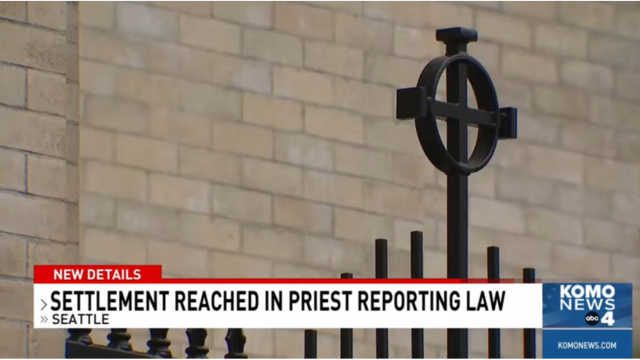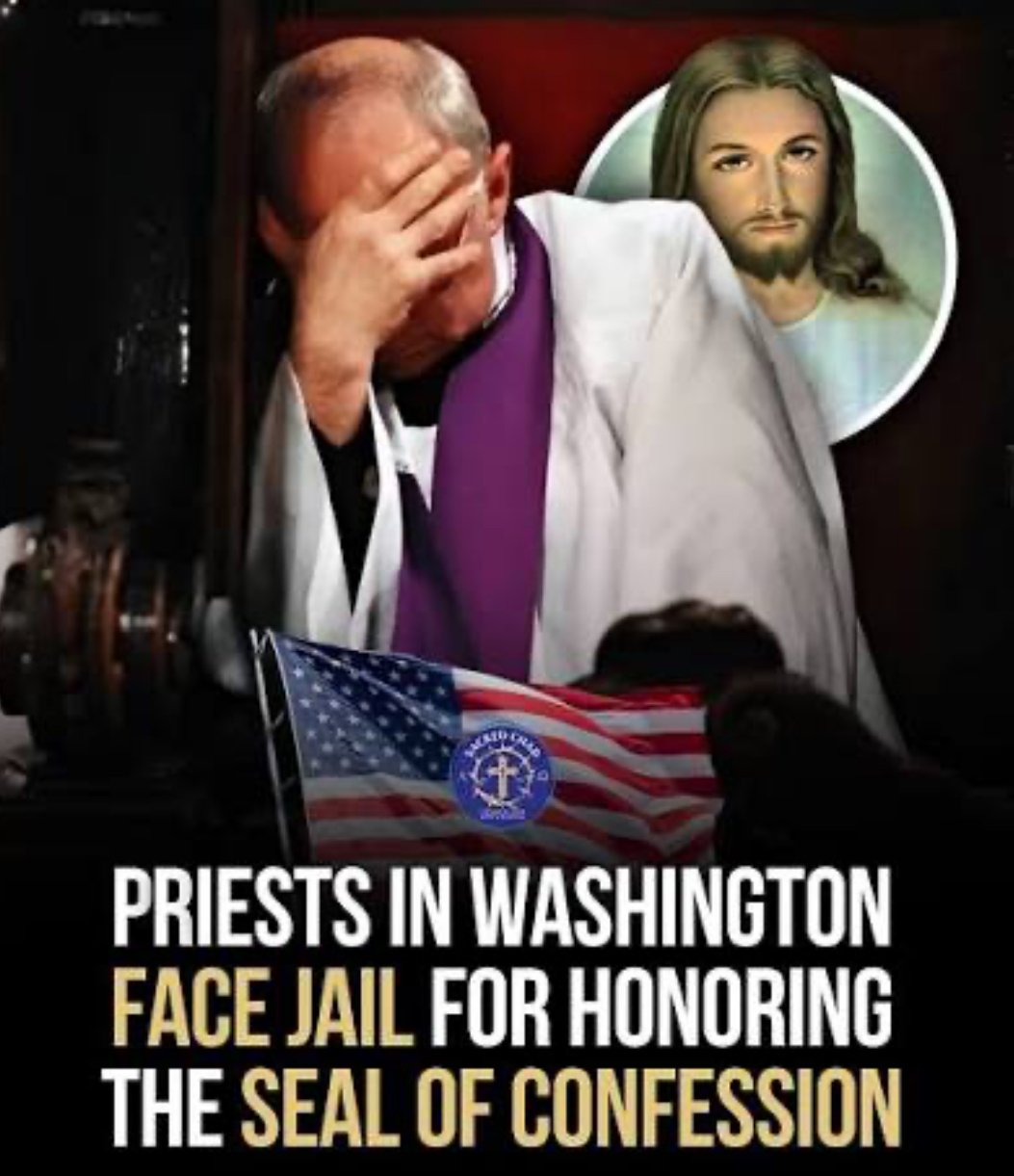Laws compelling clergy to report information on crimes obtained in confession threaten freedom of religion and do not serve any useful purpose.
by Massimo Introvigne

In a resounding win for religious freedom and constitutional sanity, Washington State has officially abandoned its effort to compel clergy to violate the sacred seal of confession. The controversial bill, which would have forced clergy to report child abuse even if learned during confession, has been shelved on October 10 through a motion in a case pending at the U.S. District Court for the Western District of Washington, following intense public backlash and principled opposition from religious leaders, legal scholars, and human rights advocates.
Among those who joined the campaign against the bill was “Bitter Winter,” whose editorial team warned that the legislation was not only unconstitutional but morally incoherent. We argued that the bill was a direct attack on the core of religious practice and a dangerous precedent for state overreach into sacred spaces.
The seal of confession is not a clerical privilege—it is a cornerstone of Catholic doctrine and the theology of other religions. It guarantees that anything confessed to clergy remains absolutely confidential, under pain of excommunication. This confidentiality is not negotiable, not conditional, and not subject to political fashion.
Critics of the bill pointed out the obvious: laws that attempt to breach the seal of confession are not only ineffective—they are counterproductive. No one would confess a crime to a priest or minister if they knew that confession could be used against them in court. As “Bitter Winter” noted, the 19th-century philosopher Jeremy Bentham—himself no friend of Catholics—famously stated, “the moment the constabulary were known to have harvested their very first confessional secret, the well of such secrets would dry up.” Criminals would not confess their sins to priests and ministers if they knew that what they confessed may be reported to the police. And the very victims such laws claim to protect would be left with fewer paths to justice, not more.
These laws solve nothing and threaten everything. The Washington bill was framed as a child protection measure. But it would have done nothing to protect children—and everything to undermine religious liberty. Abusers do not typically confess their crimes to priests, certainly not with details that may lead to their prosecution. The sacrament of confession is not a hotline to law enforcement. It is a spiritual refuge, a place for repentance and transformation. Undermining it does not help victims—it merely detonates a constitutional time bomb under the First Amendment.

The bill’s quiet demise is a testament to the power of principled resistance. Catholic bishops, joined by pastors of other denominations, civil liberties organizations, and religious freedom advocates stood firm. They reminded lawmakers that the Constitution does not bend to political expediency. And they won.
While Washington State has backed down, similar threats loom elsewhere. In Australia, laws compelling clergy to report confessional admissions remain on the books in some jurisdictions. Other U.S. states have flirted with similar proposals. The victory in Washington must become a blueprint—not a conclusion.
We will continue the battle. We will defend the seal of confession wherever it is threatened. And we expect that laws attempting to breach this sacred trust—whether in Canberra or Sacramento—will soon find their rightful place in the dustbin of history.
This is not just a Catholic issue, or a threat to some other religions. It is a human rights issue. It is a constitutional issue. And it is a moral issue. The seal of confession is not a loophole—it is a line in the sand. And today, in Washington State, that line held.
Let it hold everywhere.

Massimo Introvigne (born June 14, 1955 in Rome) is an Italian sociologist of religions. He is the founder and managing director of the Center for Studies on New Religions (CESNUR), an international network of scholars who study new religious movements. Introvigne is the author of some 70 books and more than 100 articles in the field of sociology of religion. He was the main author of the Enciclopedia delle religioni in Italia (Encyclopedia of Religions in Italy). He is a member of the editorial board for the Interdisciplinary Journal of Research on Religion and of the executive board of University of California Press’ Nova Religio. From January 5 to December 31, 2011, he has served as the “Representative on combating racism, xenophobia and discrimination, with a special focus on discrimination against Christians and members of other religions” of the Organization for Security and Co-operation in Europe (OSCE). From 2012 to 2015 he served as chairperson of the Observatory of Religious Liberty, instituted by the Italian Ministry of Foreign Affairs in order to monitor problems of religious liberty on a worldwide scale.



